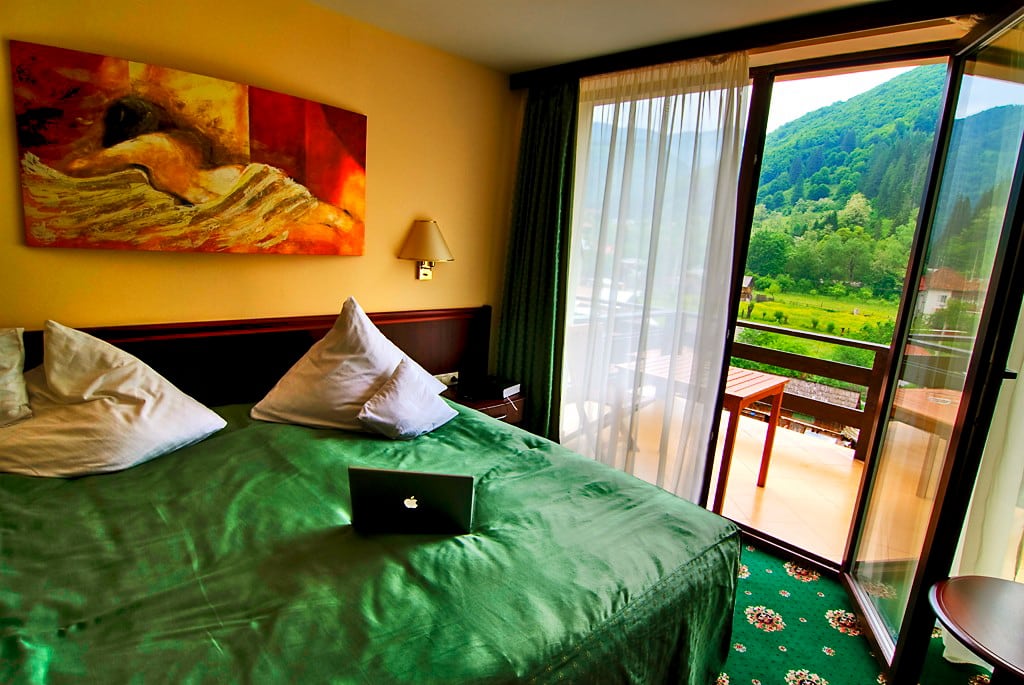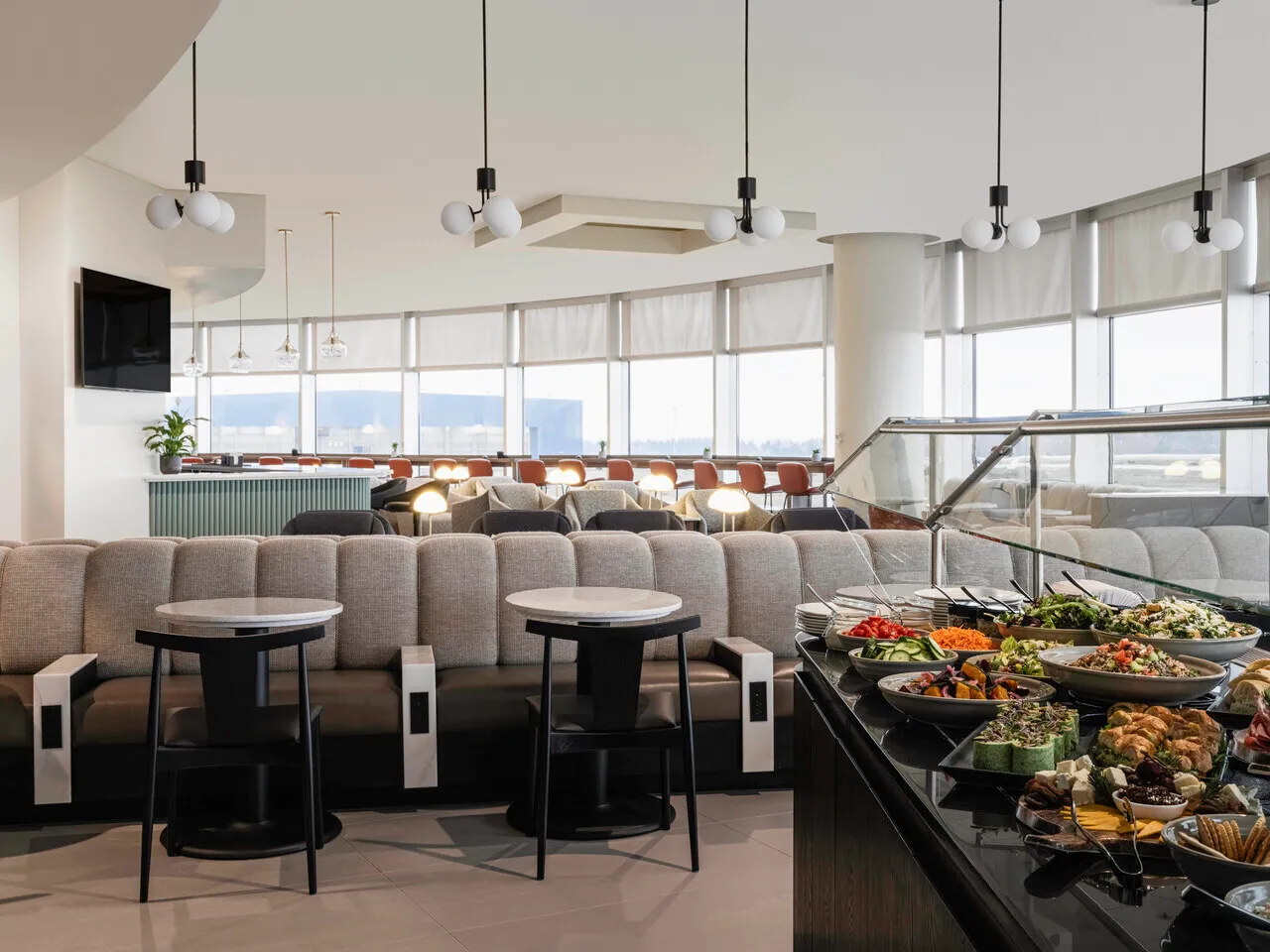Where to Find the Best Hotel Wi-Fi at Chains Around the World

Skift Take
U.S. hotels charging for Wi-Fi in Asia evidently helps produce better Wi-Fi quality there than in the U.S. or Europe as chains like Marriott and Hilton, which both have paid models in the U.S. as well as Asia, have lesser quality Wi-Fi at their American properties.
That's one of the biggest take-aways from a new ranking of hotel Wi-Fi quality percentages from Hotelwifitest, which lets travelers test hotel Wi-Fi while at a property and publishes test results for other travelers to view. Globally, two Scandinavian-based hotels, Nordic Choice Hotels and Scandic Hotels, were among the 10 hotels with the best overall Wi-Fi quality and both also ranked well in Europe.
Marriott ranks the highest in the U.S., which at 47.2% isn't saying much, and the chain also ranks the highest for a U.S. hotel in Asia. On the whole U.S. hotels have higher percentages outside the U.S. in Asia and Europe than they do on their home turf.
Many U.S. hotels still rank toward the bottom of the top 50 global chains with "adequate Wi-Fi" which Hotelwifitest defines as having a download speed of at least 3 megabits per second (the Netflix recommendation for SD-quality streaming) and a 500 kilobits per second upload speed (the Skype recommendation for high-quality non-HD video calling).
Top 25 Global Hotel Chains With the Highest Wi-Fi Quality Percentages
| Rank | Hotel | Wi-Fi Quality % | % of Properties With Free Wi-Fi |
|---|---|---|---|
| 1 | Nordic Choice | 84.70% | 100% |
| 2 | Radisson Blu | 68.80% | 95.20% |
| 3 | Renaissance | 61.00% | 30% |
| 4 | Mercure | 60.70% | 83.60% |
| 5 | Ibis and ibis styles | 60.30% | 84.20% |
| 6 | Scandic Hotels | 57.60% | 100% |
| 7 | Inter-Continental | 56.30% | 42.10% |
| 8 | Econo Lodge | 55.30% | 86.20% |
| 9 | Four Points | 54.20% | 79.50% |
| 10 | Marriott Hotels & Resorts | 52.50% | 18.10% |
| 11 | Hyatt Hotels | 49.00% | 100% |
| 12 | Sheraton Hotels & Resorts | 47.10% | 37.00% |
| 13 | Radisson | 47.10% | 93.80% |
| 14 | Sleep Inn | 46.80% | 88.80% |
| 15 | Novotel | 46.50% | 82.20% |
| 16 | Best Western | 45.60% | 91.80% |
| 17 | Quality | 45.60% | 87.90% |
| 18 | Hilton Hotels & Resorts | 45.60% | 26.00% |
| 19 | Crowne Plaza | 45.10% | 68.20% |
| 20 | Sofitel | 43.90% | 73.60% |
| 21 | Ramada | 43.60% | 86.60% |
| 22 | Comfort Suites | 43.30% | 89.10% |
| 23 | Westin | 43.00% | 25% |
| 24 | Super 8 | 42% | 90.60% |
| 25 | Comfort Inn | 40.20% | 88.80% |
Source: Hotelwifitest
Paid Equals Better in Asia?
Though a previous Hotelwifitest ranking illustrated U.S. hotels' abundance of free Wi-Fi doesn't correlate to faster speeds, travelers won't appreciate paid models in the long-term even as they apparently prove effective in Asia in maintaining decent quality.
It's unclear why paying yields better quality in Asia and not in the U.S. but one thing is certain: travelers are relentless in TripAdvisor reviews if they must pay, and Wi-Fi that's only available in lobbies and not guest rooms, even if free, isn't enough to keep pace with guests' demands.
In Asia chains like Marriott, Hilton, Hyatt and Starwood rank towards the top for Wi-Fi quality and their Wi-Fi quality percentages are significantly higher. Marriott and Hyatt's percentages in Asia are 81.8% and 60%, respectively, and their global and U.S. percentages range from 10 to 30 percentage points lower. Most chains percentages' in the Asia, Europe and the U.S. are at 50% and below.
"I really think one of the reasons for this is that in Asia you have to pay for Wi-Fi much more often than in the U.S. or Europe, especially at branded hotels," said Yaroslav Goncharov, Hotelwifitest's CEO. "It is more difficult to provide decent Wi-Fi quality when it is free."
The JW Marriott Hotel Bangkok, for example, tested for an average speed of 8.4 megabits per second while the New York Marriott Marquis tested for 5.0, although there are several instances of American properties with faster average speeds on Hotelwifitest than their Asian counterparts.
Essentially, speed wasn't weighted as heavily for this ranking as other factors like VOIP (needed for Skype, for example) and streaming capabilities, said Goncharov. Whether a hotel's average speed was 10 megabits per second or 30, it still qualified as adequate.
The importance of fast Wi-Fi shouldn't be downplayed as business travelers consider this the most important amenity when choosing hotels and leisure travelers value it too.




